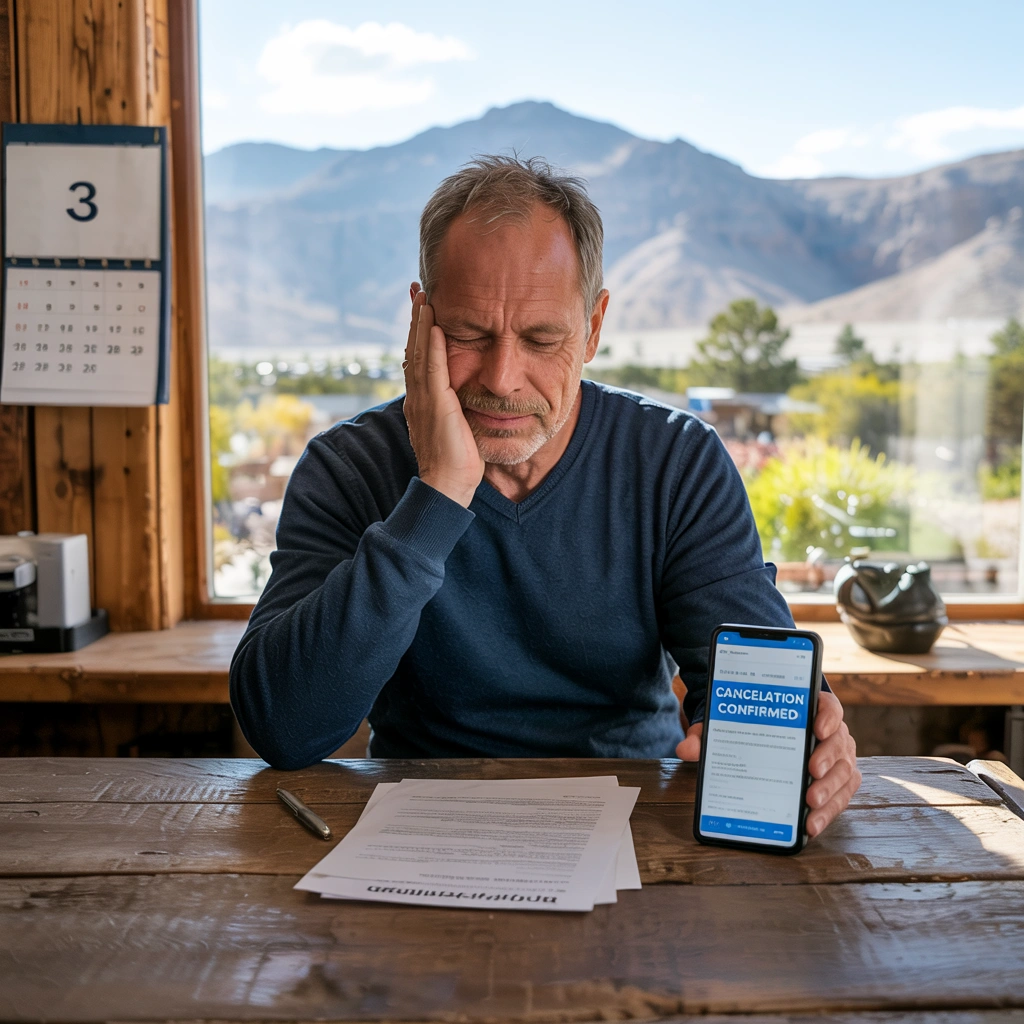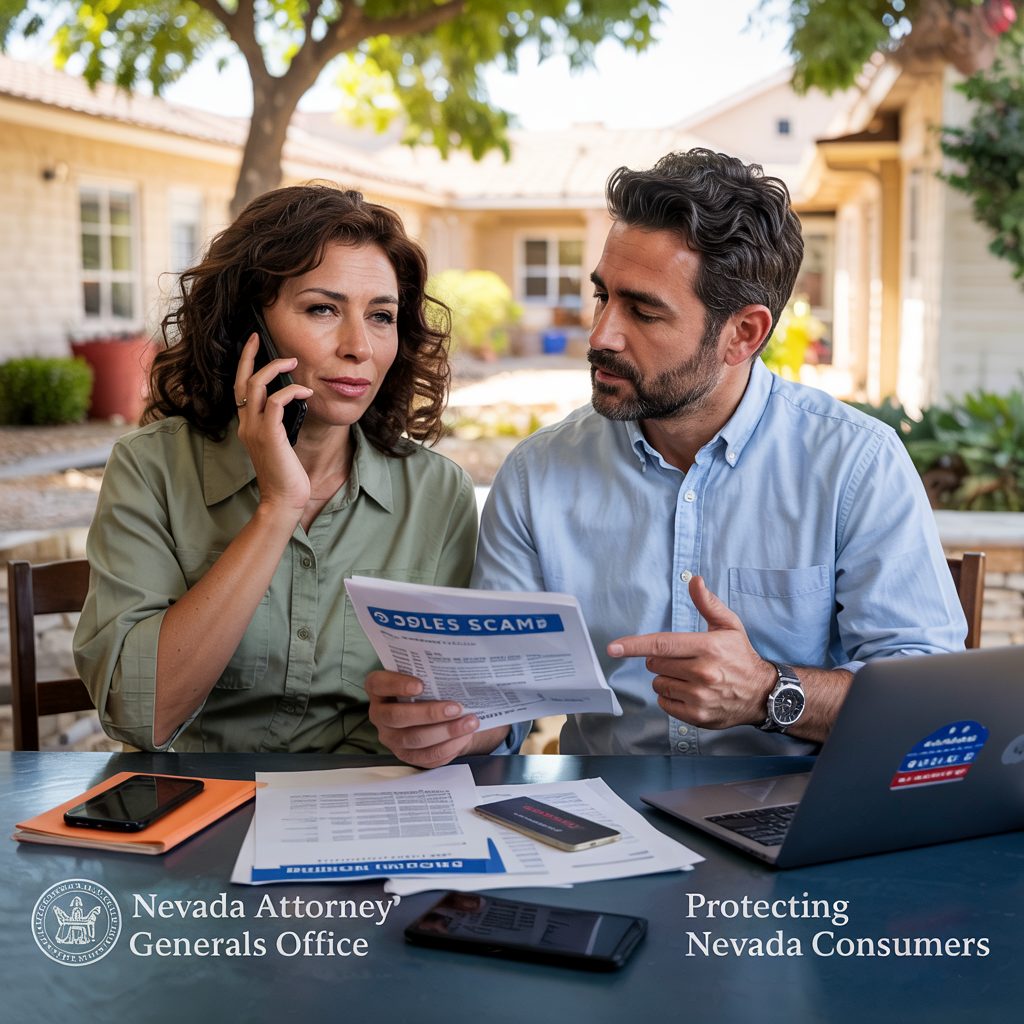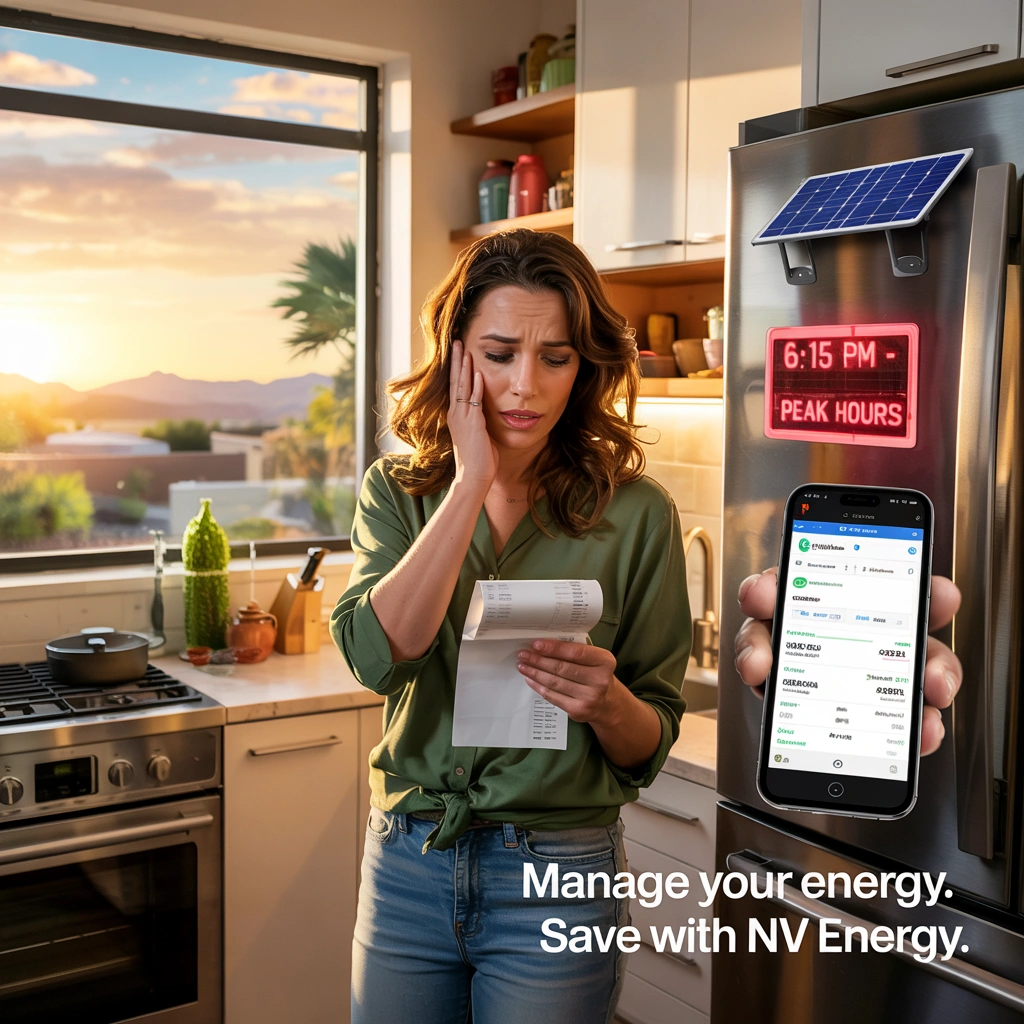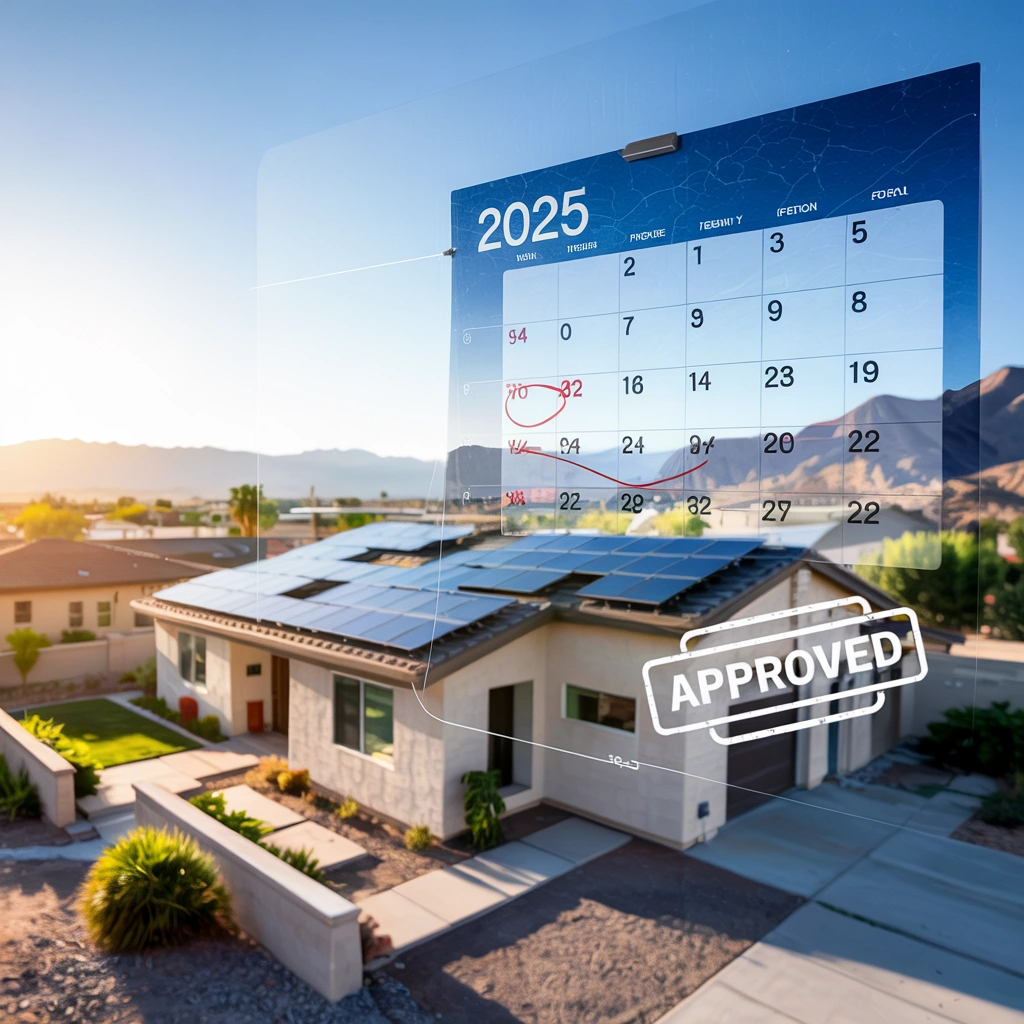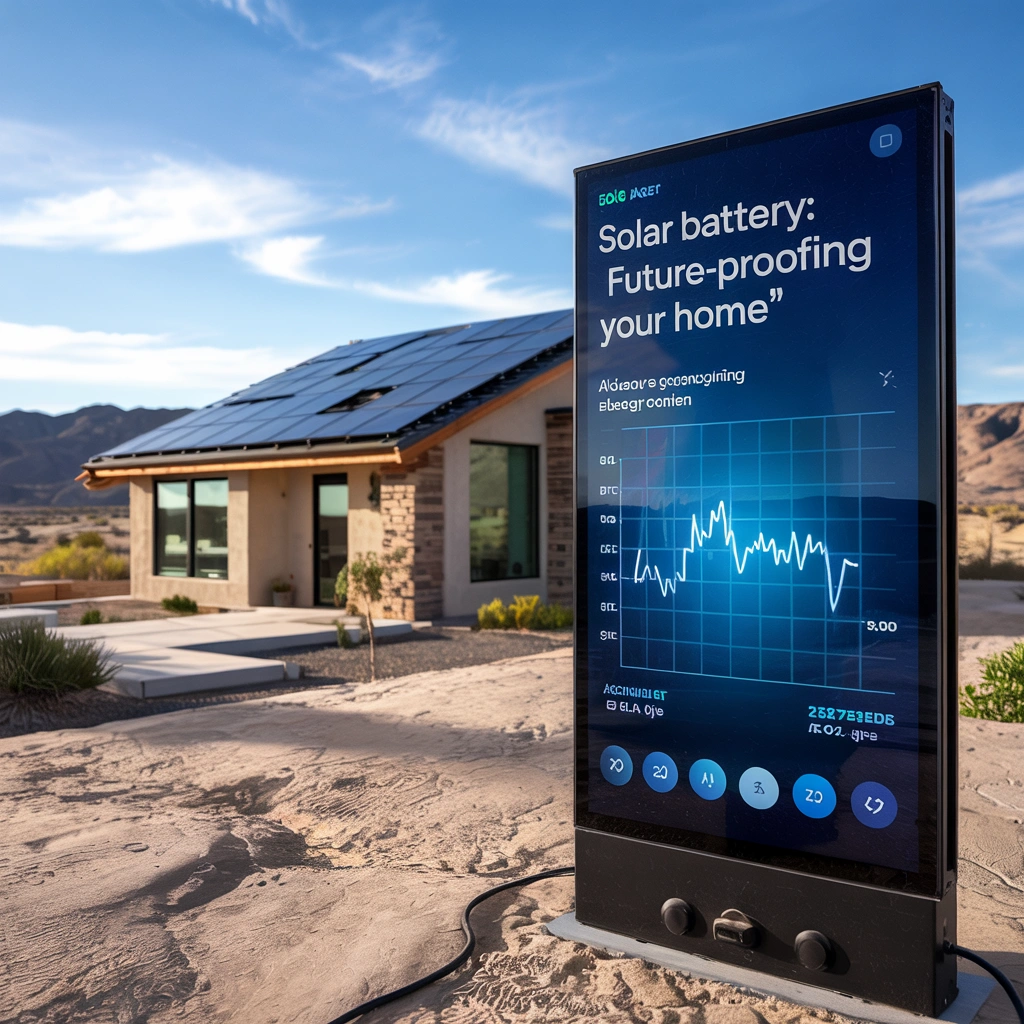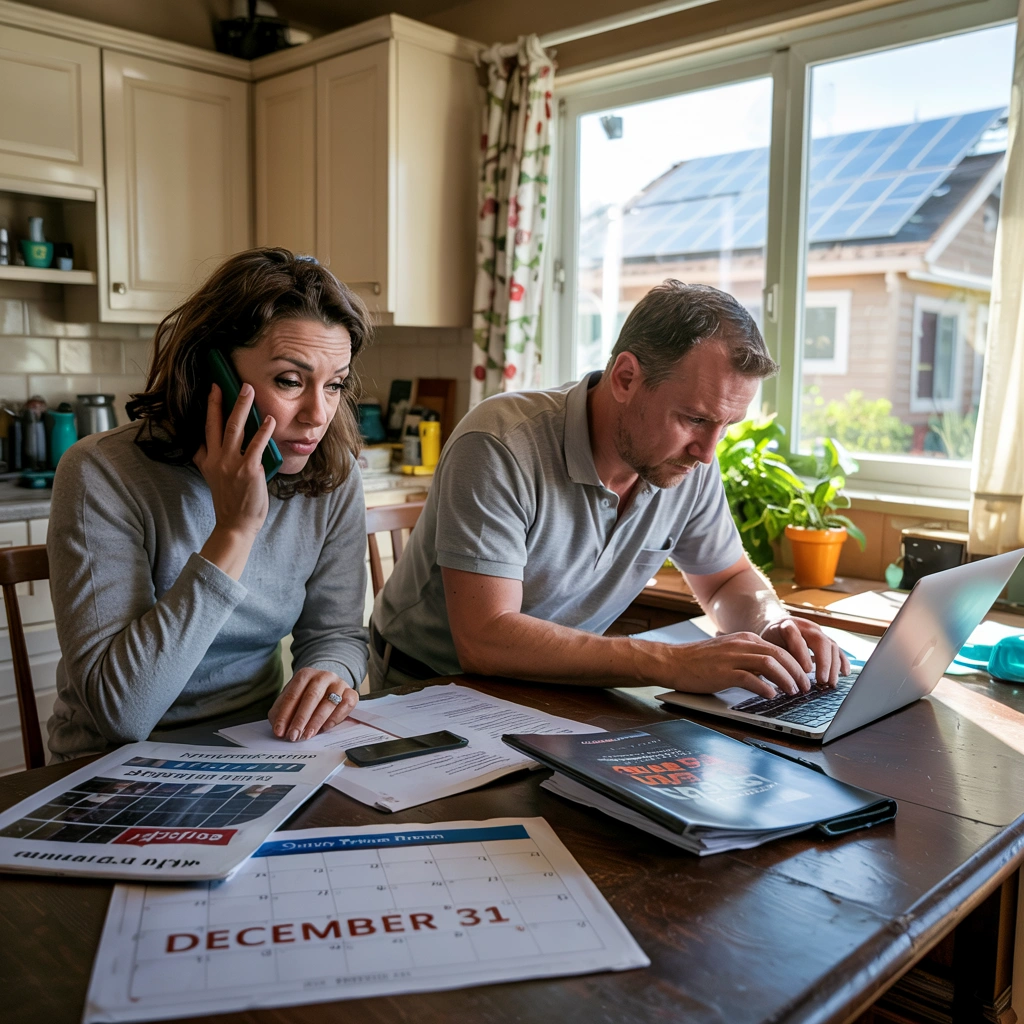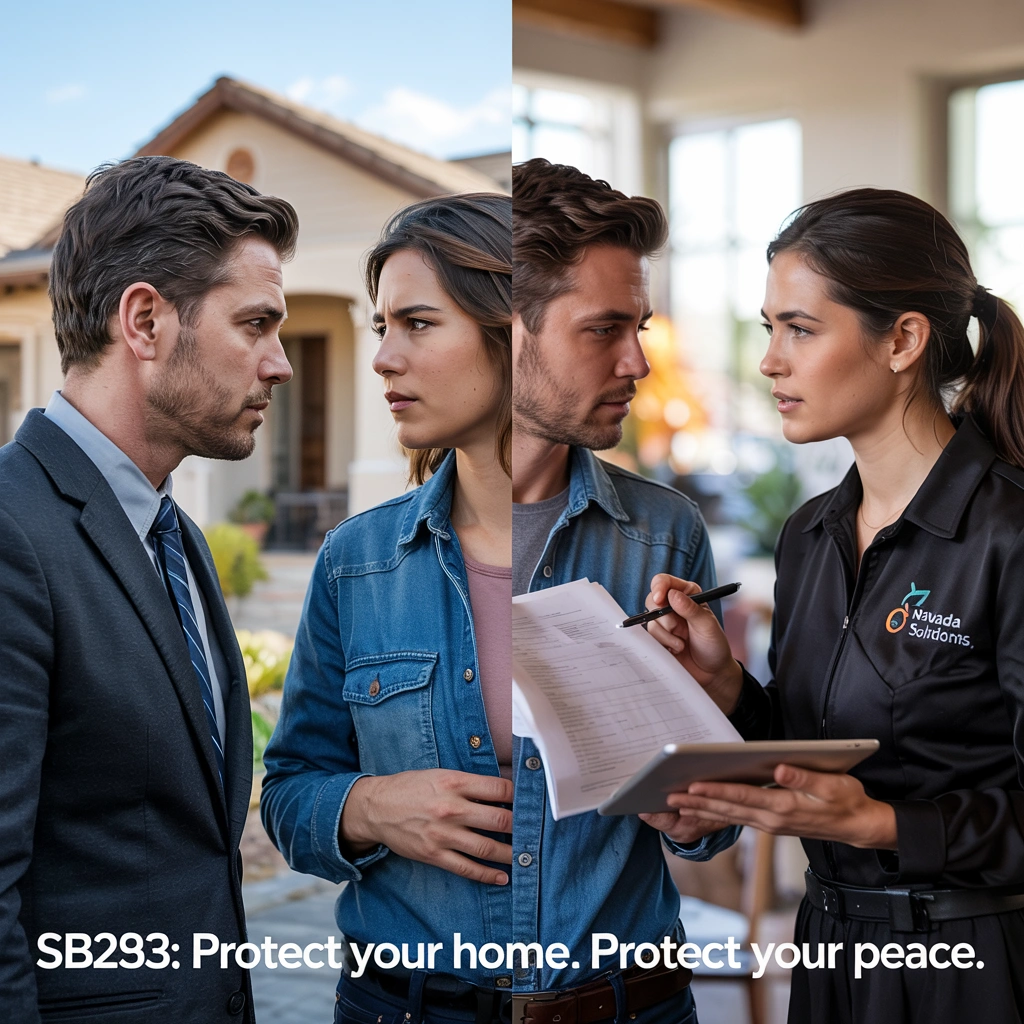
Summary: Nevada’s new SB293 law aims to protect homeowners from solar scams by imposing strict requirements for sales teams and contracts. However, many homeowners still don’t know how to identify the red flags that signal violations—or what legal authority they actually have when companies break these rules.
Key Takeaways
- Nevada Law SB293 protects homeowners from solar scams by requiring three-day cancellation periods, employee-only sales teams, and recorded contract conversations starting January 1, 2024.
- Homeowners can void contracts for SB293 violations, giving significant legal recourse against deceptive solar companies with penalties up to $5,000 per violation.
- The law mandates enhanced transparency through expanded cover page disclosures, native language contract accessibility, and strict licensing requirements for solar sales representatives.
- Red flags include unlicensed contractors, missing recorded verification calls, and promises made outside written contract terms that signal potential SB293 violations.
Nevada homeowners considering solar installation now have unprecedented protection against deceptive sales practices. This consumer protection law transforms how solar companies operate throughout the Silver State, creating accountability where none existed before.
Nevada’s SB293 Protects Homeowners from Solar Scams Starting January 2024
The provisions of Nevada Senate Bill 293 that protect homeowners from solar scams became effective January 1, 2024, marking a watershed moment for solar consumer protection. The legislation emerged from a significant number of complaints to the Nevada Bureau of Consumer Protection about high-pressure door-to-door solar sales tactics and independent contractors who sometimes proved difficult to track down, leaving homeowners with limited recourse.
SB293 specifically targets distributed generation systems, which include residential solar installations. The law creates strict requirements for solar companies operating in Nevada, establishing consumer-first protections that address every aspect of the solar sales process. For Nevada homeowners navigating this new landscape, understanding these protections becomes vital for making informed decisions about solar investments. M&J Trusted Marketing provides detailed guidance on avoiding solar contract pitfalls through their protection checklist.
The timing proved critical as Nevada’s solar market experienced significant growth throughout the 2010s. Some independent contractors used deceptive practices, making false promises about savings, and disappearing after collecting commissions. This legislation represents Nevada’s response to widespread consumer fraud in the solar industry.
Key Protections SB293 Guarantees Homeowners
1. Three-Day Right to Rescind Distributed Generation Agreements
SB293 grants Nevada homeowners an unconditional three-business-day cancellation period for any solar contract. This cooling-off period begins when homeowners sign their solar agreement, providing time to review contract terms carefully, research the company’s reputation, and consult with family or financial advisors without pressure.
The rescission right requires no justification or penalties. Homeowners simply exercise their right to cancel within the specified timeframe. This protection specifically counters high-pressure sales tactics that previously trapped families in unfavorable solar agreements before they could properly evaluate their decision.
2. Licensed W-2 Employee Sales Requirements
The law restructures solar sales teams by requiring solar salespersons to either be W-2 employees of a licensed company or hold a C-2 or C2-G electrical license issued by the Nevada State Contractor’s Board. Without this personal licensing, sales representatives must work as W-2 employees for a licensed person or company.
This employee requirement creates direct accountability between sales representatives and installation companies. No more fly-by-night contractors can collect commissions and disappear, leaving homeowners stranded with disputes. Solar companies must now employ in-house sales staff, establishing clear chains of responsibility and professional standards.
3. Mandatory Recorded Contract Verification Calls
Solar companies must record a verification call with homeowners to confirm understanding of contract terms, particularly those on the cover page. This recording must occur at the time of the execution of the agreement or within 48 hours after the execution of the agreement, and companies must maintain these recordings for at least four years post-final system inspection.
The recorded communication mandate ensures sales representatives cannot make verbal promises that contradict written contract terms. Homeowners can request access to these recordings if questions arise about what was discussed during their sales process, creating transparency that previously didn’t exist.
Enhanced Contract Requirements Under SB293
Expanded Cover Page Disclosure Requirements
Nevada already mandated specific cover page items, including total cost, installation timeline, estimated monthly payment, and estimated annual production. SB293 expands these requirements with additional disclosures that protect homeowners from common deceptive practices.
The enhanced cover page must now include notice of Nevada’s three-day right to rescind, information about recorded call requirements, notice regarding offset and additional energy use after solar installation, and disclosure confirming no other promises were made outside the cover page. These additions ensure homeowners understand their rights and have clear documentation of all agreement terms.
Native Language Contract Accessibility
SB293 honors Nevada’s diverse population by mandating language accessibility in solar contracts. When solar companies or representatives conduct advertising or negotiations in languages other than English, they must provide contract translations and notices in that language before signing.
This provision ensures all Nevada homeowners understand their solar agreements completely, regardless of their primary language. The requirement prevents companies from exploiting language barriers to hide unfavorable terms or rush homeowners into decisions they don’t fully understand.
Red Flags That Signal SB293 Violations
1. Unlicensed Independent Contractor Sales Teams
Nevada homeowners should immediately question any solar salesperson who cannot demonstrate they work as a W-2 employee for a licensed company or hold personal C-2/C2-G licensing. Independent contractors without proper licensing violate SB293’s fundamental employee requirements.
Ask sales representatives directly: “Are you a W-2 employee of this company?” and “What licenses do you and your company hold?” Legitimate solar companies will readily provide this information and documentation. Evasive answers or refusal to provide licensing details indicate potential SB293 violations.
2. Missing Recorded Verification Conversations
Companies that refuse to record verification conversations or cannot provide access to previous recordings when requested violate SB293’s communication requirements. The law mandates these recordings specifically to protect homeowners from disputes about verbal promises.
Solar companies complying with SB293 will openly discuss their recording practices and explain how homeowners can access these recordings later. Companies that claim recording isn’t necessary or make excuses about technical difficulties likely aren’t following the law.
3. Promises Made Outside Written Contract Terms
SB293’s enhanced cover page requirements specifically address this common deceptive practice. Sales representatives who make verbal promises about savings, performance, or benefits that aren’t documented in the written contract violate the law’s transparency provisions.
All legitimate promises about system performance, financial benefits, and company obligations must appear in writing within the contract. Homeowners should be suspicious of any benefits or guarantees that sales representatives claim but won’t put in the written agreement.
Enforcement Powers and Real Consequences
Purchaser’s Right to Void Contracts for Violations
SB293 provides homeowners with significant legal leverage through contract voidability rights. If solar companies violate any SB293 provisions, homeowners can void their contracts entirely, regardless of how much time has passed since signing.
This voidability right gives homeowners powerful protection against companies that fail to comply with licensing requirements, recording mandates, or transparency provisions. The remedy goes far beyond simple monetary penalties, allowing homeowners to escape problematic contracts completely.
Nevada State Contractors Board Enforcement Authority
The Nevada State Contractors Board holds enforcement authority for SB293 violations related to solar installations, with disciplinary actions available against licensed contractors. These enforcement mechanisms ensure SB293 isn’t merely symbolic legislation but carries genuine consequences that protect Nevada homeowners.
Multiple violations can quickly accumulate significant penalties, making compliance more cost-effective than violations. The enforcement mechanism ensures companies that ignore the law’s requirements face real financial and professional consequences.
SB293 Creates Accountable Solar Sales Standards for Nevada Homeowners
Nevada Law SB293 represents a transformative shift toward consumer protection in the state’s solar industry. The legislation eliminates the most common deceptive practices while establishing professional standards that benefit both homeowners and legitimate solar companies.
The law’s approach addresses licensing, transparency, communication, and enforcement through measurable requirements and meaningful penalties. Nevada homeowners now have clear rights, specific protections, and real recourse when solar companies violate consumer protection standards.
This legislation aims to enhance solar consumer protection in Nevada and promote ethical business practices while promoting continued clean energy adoption. The result benefits homeowners, legitimate solar companies, and Nevada’s sustainable energy future through accountability and transparency.
For expert guidance on solar contract protection and consumer advocacy, M&J Trusted Marketing helps Nevada homeowners navigate solar decisions with confidence and clarity.
Frequently Asked Questions
How Solar Installation Companies Can Leverage This Content
This informative article, “What Is Nevada Law SB293? A Homeowner’s Guide” can be adapted and repurposed across multiple marketing formats to help increase website traffic for kitchen remodeling services, build trust with potential clients, and differentiate their services in a competitive market. We help with “Why Nevada Solar Companies Need Location-Specific Content Marketing” by transforming technical content into powerful marketing campaigns across all digital channels, ensuring maximum reach and engagement with potential customers.
